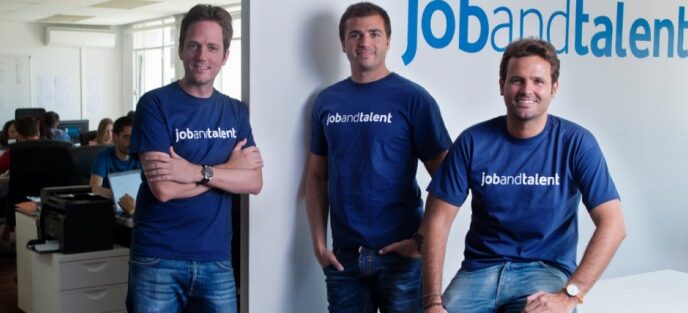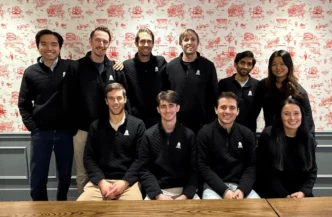Bureaucracy is often blamed for inefficiency, especially in countries like Germany, where outdated processes reportedly cost over €146 billion in lost productivity each year. With public institutions overwhelmed and regulatory frameworks becoming more complex, many digital tools have failed to simplify things — largely because legal documents are still written in natural language that machines can’t process.
A Berlin-based startup, Rulemapping Group, believes it has the solution: transforming regulations into machine-readable code to drive real automation. And with a fresh €12 million funding round, the company is now scaling its AI-powered decision engine to streamline both public and private sector administration.
Turning Regulations Into Code: A Radical Approach to Bureaucracy
Rulemapping Group’s core innovation lies in converting natural-language legal texts into structured, machine-readable rules. This allows regulatory logic to be directly integrated into digital systems — enabling automated decisions that are legally compliant, transparent, and efficient.
Instead of digitizing broken workflows, Rulemapping re-engineers them from the ground up. This paradigm shift could make time-consuming processes like benefit applications, licensing, or compliance checks not just faster, but smarter and more reliable.
Backed to Disrupt Bureaucracy
The €12 million round includes investments from the Federal Agency for Disruptive Innovation (SPRIND), Hidden Peak Capital, and several experienced angel investors. The funding will fuel the development of Rulemapping’s AI tools, team expansion, and European growth plans.
The company’s solution doesn’t just promise efficiency — it introduces a way to encode legal certainty directly into digital processes. That makes it especially powerful in sensitive areas where traceability and compliance are non-negotiable.
A Founding Team with Deep Domain Expertise
Rulemapping Group was co-founded by Professor Dr. Stephan Breidenbach, a leading legal scholar who pioneered the “Rulemapping” methodology after recognizing the incompatibility between traditional legal writing and digital logic systems.
He’s joined by AI specialists Dr. Tilo Wend and Dr. Dirk Woywod, along with seasoned entrepreneurs Ina Remmers, Till Behnke, and Matthes Scheinhardt — the team behind social platforms like nebenan.de and betterplace.org. Together, they’re blending legal expertise, AI innovation, and platform thinking to address a deeply rooted societal challenge.
AI and Rule-Based Systems: No More Guesswork
Rulemapping isn’t just riding the AI wave — it’s anchoring it in legal accuracy. Its technology combines AI automation with clear rule-based structures, avoiding the risk of hallucinations often associated with generative AI. Every automated decision can be traced, explained, and justified — an essential requirement in government and enterprise settings.
Till Behnke, Rulemapping’s CEO, explained, “Bureaucracy is the backbone of our democracy, but Germany hasn’t kept up with the digital age. Our technology makes regulatory transformation finally possible.” Behnke, who also co-founded betterplace.org, believes this innovation offers a real path toward future-proof governance.
SPRIND’s Open-Source Vision and Market Potential
SPRIND has supported Rulemapping for the past two years and sees its platform as transformative. Rafael Laguna de la Vera, Director of SPRIND, noted, “This technology could drastically speed up how laws are written and applied. We aim to publish a Rulemapping standard under an open-source license to encourage broad adoption.”
Investors are also taking notice. Dr. Peter Mrosik, investor at Hidden Peak Capital, added: “This approach redefines how we manage regulatory complexity. The fusion of AI and rules unlocks efficiency in a way we haven’t seen before.”
With the EU actively discussing how to simplify administrative burdens, Rulemapping’s solution couldn’t be more timely. By embedding legal frameworks into AI-powered workflows, the startup offers a blueprint for scalable, reliable, and transparent automation across Europe — and beyond.













